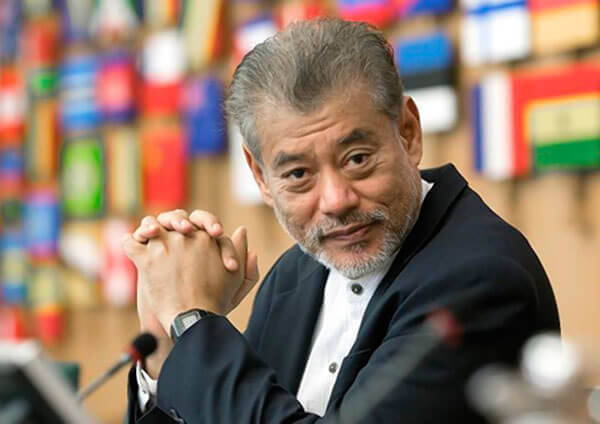ROME, Nov. 29, 2015 (IPS) – Climate change impacts are already upon us. Sea levels are rising, glaciers and ice are melting. People in poor countries are struggling to cope and adapt. Even developed countries are facing adverse consequences, taxing their own adaptive capacities to increased flooding, drought and fires. We cannot afford to wait.
Climate change is severely compromising development prospects. Failure to act effectively could significantly reduce the size of the world economy by mid-century despite continuing population growth.
Addressing climate change will be costly, but not as costly as inaction. We have waited too long to take serious action, and the delay — e.g. the slow pace at which carbon-based energy is being replaced by renewable energy — has been costly in terms of adverse impacts.
Climate Change and Development
To address climate change, the international community needs to make simultaneous progress on inclusive sustainable development and climate change. This is the only ethically defensible and politically feasible approach. In the near term, for low carbon development and for developing countries to meet their people’s basic energy needs, renewable energy generation will need to be subsidized.
Effectively addressing climate change and development will require a big investment push, particularly for renewable energy, with a strong public sector role, supported by international financial and technology transfers. Public investments need to be “front-loaded” to shape developing countries’ long-term energy infrastructure and development.
As the most vulnerable are already suffering the impacts of climate change, there is an urgent need for developed country governments to greatly increase, fast-track and front-load financial and technology support for adaptation measures.
Responsibilities
Developing countries do not see sufficient evidence that developed countries are willing to bear a fair share of responsibility for adaptation and even mitigation despite their far greater contemporary and historical contribution to the climate change problem.
Developing countries have long resisted taking on quantified emission targets, insisting on the Kyoto Protocol distinction between Annex 1 (developed) and other countries. Nevertheless, powerful developed countries have successfully pressurized developing countries to do so before the forthcoming Paris Conference of Parties (CoP).
Nevertheless, from a climate justice perspective, most developing countries have made significant enough voluntary commitments to mitigate climate change. However, commitments by developed countries have fallen far short, and which are simply not enough to keep the average global temperature rise below two degrees Celsius. Yet, developing country actions have not been matched by efforts from Annex 1 countries to provide promised financial and technological support.
Some developing countries, such as China, have not only implemented domestic policies to slow their emissions growth in the coming years, but have invested heavily in renewable energy and other low-carbon energy sources. These initiatives have accelerated the decline in renewable energy costs in recent years, but instead of being encouraged, some developed countries have erected non-tariff barriers to their exports, thus effectively slowing down the switch to renewable energy.
Public Finance Key
However, rather than rely on market forces and the profit motive to address a clear market failure, adequate public finance for a major ‘front-loaded’ public investment push to induce private investment – rather than carbon markets and private finance – can rise to the climate challenge.
Renewable energy is not affordable to most in poor countries, so there is little incentive for investment by the private sector. Hence, international transfers are needed for some public investment in key infrastructure and to provide incentives for private investment.
Feed-in tariffs offering guaranteed prices to renewable power generators have worked well in Europe and elsewhere. In developed countries, consumers effectively pay for this subsidy, but in developing countries, that is less feasible.
Thus, international financial transfers for feed-in tariff programs could quickly induce renewable energy investments in developing countries. Cost reduction will come with increased scale, while greater ability to pay will come with increased incomes. In time, the subsidies become unnecessary.
Key Priorities
Key elements of a feasible action plan would thus include:
· International technology cooperation, knowledge-sharing and adequate finance for climate change adaptation and mitigation.
· A global program of support for renewable energy in developing countries, including support for feed-in tariffs, to enable poor developing countries to ‘leapfrog’ the fossil-fuel energy stage of economic development.
· A global program of support to reduce emissions and sequestration capacity due to deforestation and forest degradation, notably through sustainable forestry and by rewarding forest-dependent communities for sustainable forest management.
An adequately funded program of support for rapid action for urgent adaptation measures in vulnerable developing countries.
There is broad consensus on all these areas, and progress on such a global program of cooperation is eminently feasible. Experience has shown and will continue to show what works best and what actual costs are, proving that stronger actions are possible and affordable. Cooperative action between developed and developing countries will, in turn, rebuild trust on the road to Paris and beyond.
Jomo Kwame Sundaram is the Coordinator for Economic and Social Development at the Food and Agriculture Organization and received the 2007 Wassily Leontief Prize for Advancing the Frontiers of Economic Thought.
























